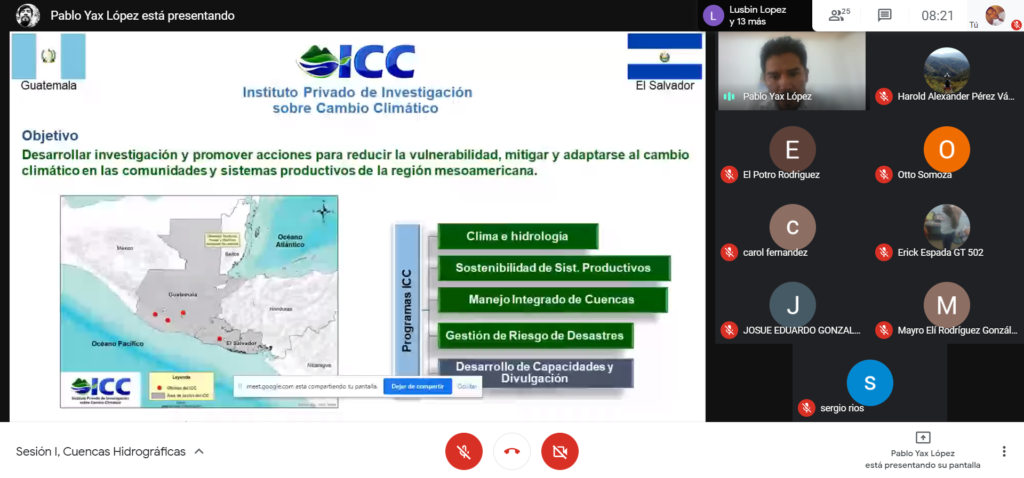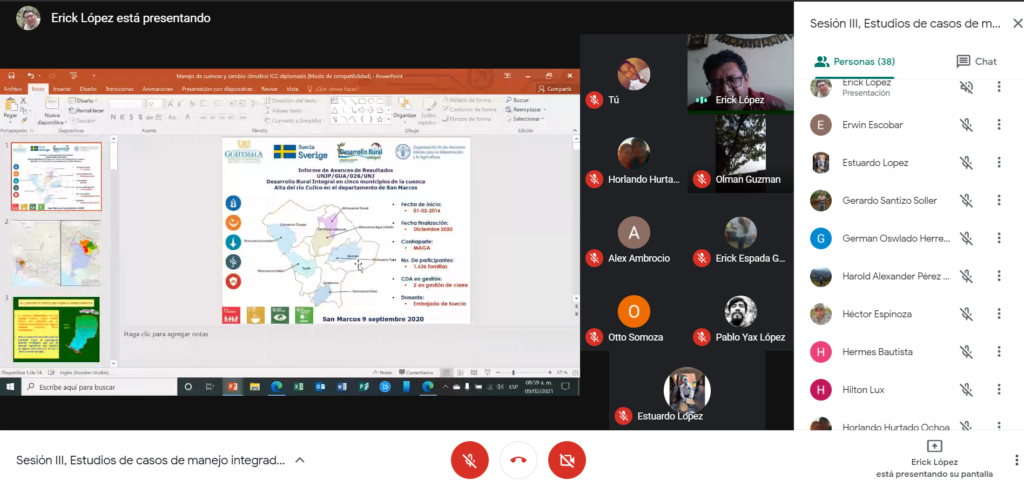The ICC, through the Capacity Building and Dissemination program, has started the (virtual) courses called: watersheds and climate change. These are carried out in partnership with MAGA delegations in the following departments: Retalhuleu, Quetzaltenango, Escuintla and Jutiapa.
In the four departments, the programs will benefit the agricultural technicians (Table 1) with the purpose of strengthening their capacities in matters of climate change and watersheds. The courses will bring multiple benefits to the population, households and community agricultural systems in each of the departments, especially, they will strengthen the capacity to adapt to climate change.
Table 1. Course groups and duration.
| Course group | Participants | Date | ||||
|
Women |
Men |
Total |
Beginning | End | ||
| Retalhuleu | 41 | 3 | 44 | January | April | |
| Escuintla | 13 | 22 | 35 | February | May | |
| Quetzaltenango | 8 | 47 | 55 | February | April | |
| Jutiapa | 2 | 14 | 16 | February | June | |
The course content is distributed in nine sessions addressing the following topics: conceptual bases on watersheds, diagnosis and planning of a watershed, case studies of integrated watershed management, scientific basis of climate change, adaptation and mitigation of climate change, and disaster risk management.
Session I basic concepts of watersheds: Pablo Yax, coordinator of the Capacity Development and Divulgation Program, welcoming the participants of the MAGA-Retalhuleu group.
Session III Case studies of integrated watershed management. Engineer Erick López sharing his experience in relation to projects in the Cuilco river watershed, MAGA-Retalhuleu group.
Session I basic concepts of watersheds. Engineer José Daniel Tistoj departmental chief of MAGA Quetzaltenango welcomes the participants.
Session I basic concepts of watersheds. Pablo Yax, coordinator of the Capacity Development Program, welcoming the participants and presenting the ICC to the MAGA-Jutiapa group.






